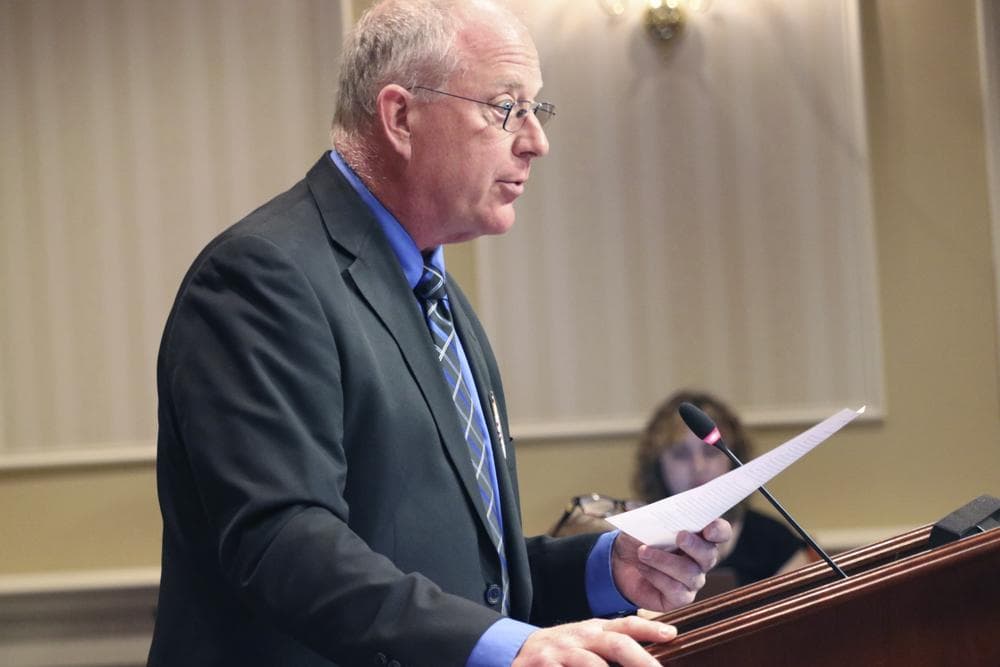NEW YORK – Much to the chagrin of the state’s Catholic conference, the Maryland Senate passed legislation late on March 16 that would repeal the statute of limitations on sexual abuse lawsuits, creating a “lookback window” for survivors to take legal action no matter how far back the abuse occurred.
The 42-5 vote in favor of the Child Victims Act of 2023 paves the way for it to become law. It was cross-filed with a Maryland House bill of the same name, which is expected to pass with ease, as similar House legislation has in recent years. Gov. Wes Moore has also publicly expressed his support for the bill.
The Maryland Catholic Conference previously called the legislation “unconstitutional” and “unfair” after it passed a Maryland Senate Judicial Proceedings Committee on a 10-1 vote on March 10. They charge the legislation goes beyond similar legislation that has passed in other states.
“The draconian provision of an unlimited window for currently time-barred civil cases to be filed, regardless of when they occurred, is nearly unprecedented among similar laws passed in other states,” the conference said in a statement.
Current Maryland laws allow victims to file claims until the age of 38. The age was 25 until 2017 legislation was passed to make the change, which the church supported.
The new legislation does, as the conference points out, treat public and private institutions differently. The measure caps judgements for private institutions – like the Catholic Church – at $1.5 million, while capping judgements against public institutions at only $890,000.
The Maryland Catholic Conference said the discrepancy “creates a blatant disparity in its treatment of victims.” The Archdiocese of Baltimore cited similar issues with the legislation in an email blast it sent to parishioners on March 12 asking them to contact their Senators to ask them to oppose the bill.
“These bills treat public and private institutions differently by setting a lower ceiling on how much a public school board, for example, could be sued compared to a private institution such as a parish or non-public school,” reads the email. “This creates two classes of survivors and greatly increases the financial harm to the Church and its ministries.”
The archdiocese declined a request from Crux for further comment on the legislation. It also highlighted in its opposition email that a perpetrator of sexual abuse can already be charged criminally at any time because there is no statute of limitations on filing a criminal complaint on sexual crimes in Maryland.
In a February letter addressed to Maryland Sen. William C. Smith Jr. (D-Montgomery), who sponsored the legislation, Maryland Attorney General Anthony Brown (D) said he would defend the constitutionality of the legislation if it were challenged in court. However, Brown acknowledged that it’s unclear how the Maryland Supreme Court would rule.
“It is our view that Senate Bill 686 is not clearly unconstitutional,” Brown wrote in the letter. “If the General Assembly chooses to provide victims of child sexual abuse an expanded chance for justice, I can in good faith defend the legislation should it be challenged in court.”
The Senate’s vote comes ahead of the public release of Brown’s report on the history of sexual abuse within the Archdiocese of Baltimore. The 456 page report is expected to highlight the abuse of more than 600 people by more than 150 clergy members.
In their opposition to the statute of limitations legislation, the Maryland Catholic Conference defended Maryland Catholic Church record of helping clergy sex abuse victims.
“The Catholic Church in Maryland has provided millions in therapeutic counseling and direct financial payments to victim-survivors and believes this legislation, if passed, will be found unconstitutional and provides false hope to victims who have already suffered far too much,” the conference said.
Follow John Lavenburg on Twitter: @johnlavenburg













